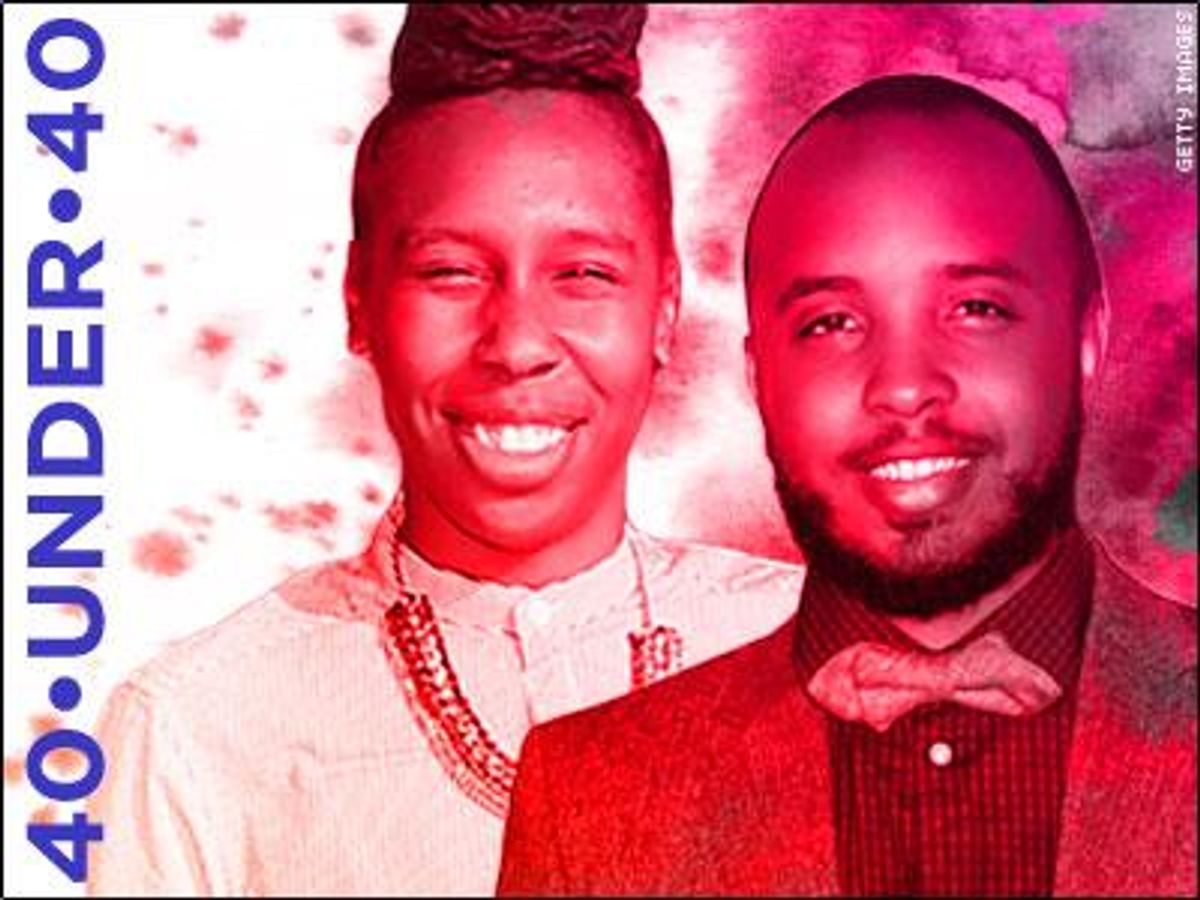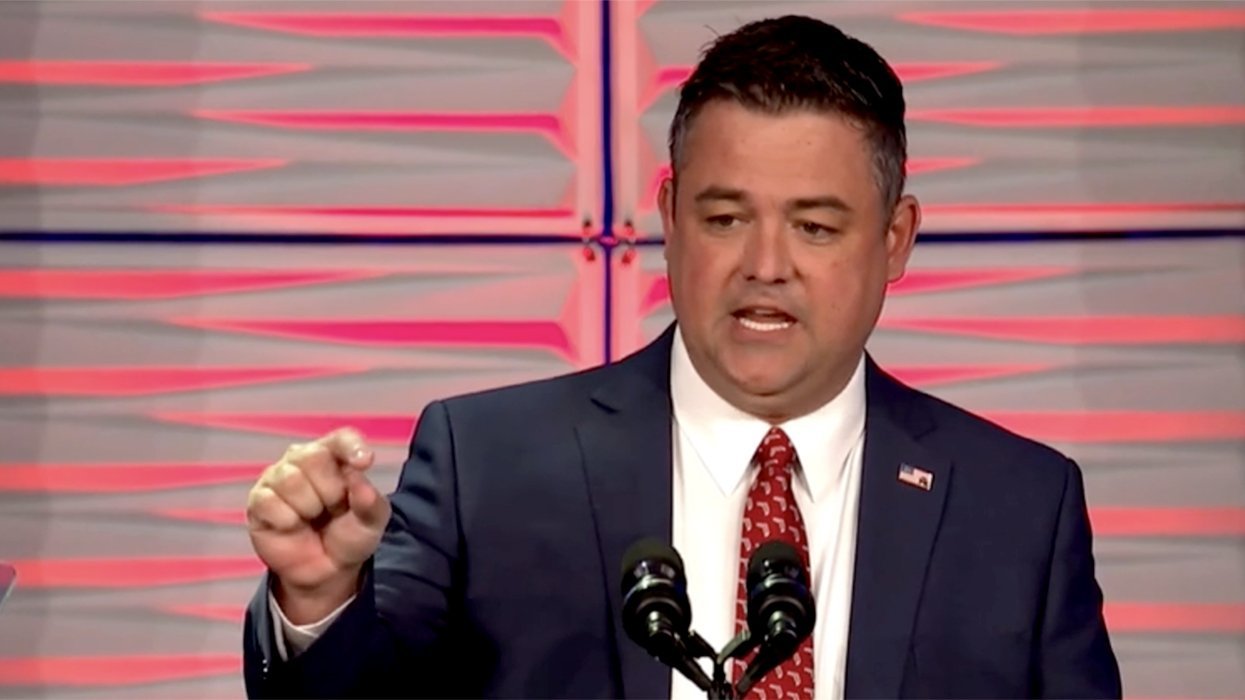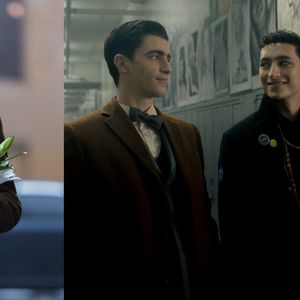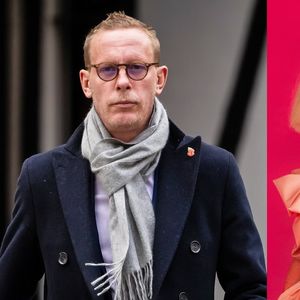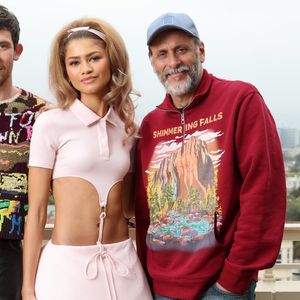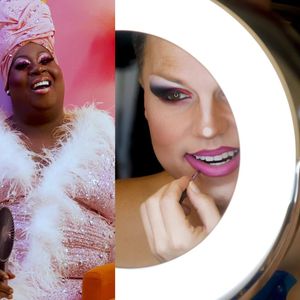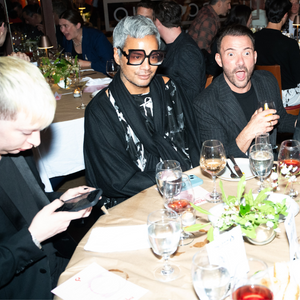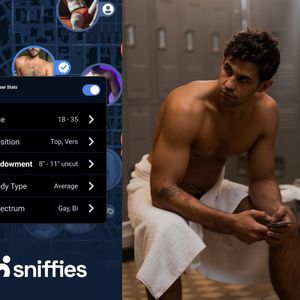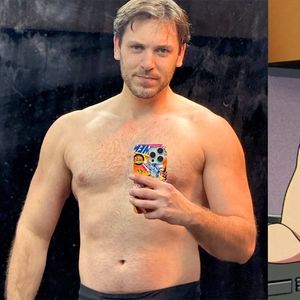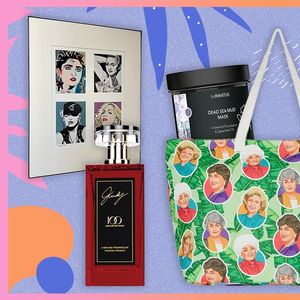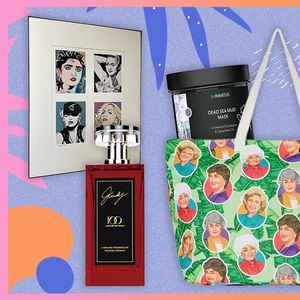Justin Simien, 30
Los Angeles
@JSim07
Lena Waithe, 30
Los Angeles
@HillmanGrad
In the pilot presentation of Twenties -- a series about young adulthood seen from the point of view of a black lesbian -- the main character, Hattie, answers a hot-button question about cinematic preference during a vlogging session. "I'm sorry, but when it comes to The Wizard of Oz and The Wiz, I prefer the white one," she tells her YouTube audience.
It's a comic moment, but also a crucial one for Hattie, who is a thinly veiled version of the series' writer and creator, Lena Waithe. Since Dorothy Gale first flew over the rainbow on-screen in 1939, The Wizard of Oz became not only a classic of cinema but a film that holds a special place in the hearts of its gay audience, which cherishes its music and inclusive message. On the other side of the coin, The Wiz is a retelling of the story that, in its casting of Diana Ross as a Harlem-born Dorothy paired with a first-time film appearance by Michael Jackson, is a milestone moment for African-American culture in cinema. For Hattie as well as Waithe, the choice between these films and their respective icons (Judy Garland versus Diana Ross!) speaks to the Venn diagram of identity that comes with being both gay and black in America.
Ultimately, Waithe shares the opinion of her fictional alter ego. (Both also have namesakes of female trailblazers in cinema: Waithe is named after Lena Horne, and her character is named after Hattie McDaniel, the first African-American to win an Academy Award.) "No shade to The Wiz," Waithe disclaims, but the timeless nature of The Wizard of Oz and her fond memories watching it in her youth tip the scales in favor of the 1939 film.
"The fantastic thing about that film is it is so timeless and that my child can watch it and be just as enamored by it as I was, as my grandmother was," the 30-year-old screenwriter says. "It's really about taking a journey into oneself... and that to me is so amazing. That really spoke to me as a storyteller, wanting to tell stories that you can [watch] again and again, and it never gets old."
For Waithe, who grew up on the south side of Chicago, the yellow brick road to Hollywood began with watching A Different World, a spin-off of The Cosby Show about students at a historically black college. Waithe had never heard of HBCUs before A Different World, and the stories of upwardly mobile black characters opened doors to possibilities that she had not known existed.
"I want to be a part of whatever this is," she recalls thinking upon first seeing the progressive sitcom. "I loved television, and I loved it not in a couch potato way but in a way that really digested it, lived it, breathed it. But A Different World was really monumental for me because it shows really interesting characters that were black. They were smart. They were cool. They were hip. And they were getting a higher education."
"It really showed me that the world was bigger than my own backyard, and it gave me a broader view of young black people," Waithe continues. "That's what I want to do in my work, in that I really want to show a more specific and three-dimensional character that is a person of color. Sometimes, they may happen to be gay."
Waithe -- whose Twitter and YouTube handle, HillmanGrad, is a nod to the fictitious Hillman College attended by the characters in A Different World -- graduated in 2006 from Columbia College Chicago, where she studied writing, producing, and television. She took her skills and passion to Los Angeles. There she interned and served as an assistant in productions ranging from MTV's The Real World to The Secret Life of Bees until she eventually scored a position as a staff writer on Fox's Bones. Along the way, she made valuable connections in entertaiment, like Queen Latifah, one of the stars of Bees. Latifah's production company, Flavor Unit Entertainment, is now signed on to produce Twenties, which was picked up by BET this summer as a television pilot that may become a series.
In the midst of this whirlwind, she met fellow budding writer Justin Simien. The pair first crossed paths at a writers' group organized by mutual acquaintance Michael Svoboda. At the time, Simien was workshopping a script titled Dear White People, a politically charged satire of race on a college campus. During one session, Waithe read lines for one of the characters, the "diva" role of Coco Conners, and her fire immediately caught Simien's attention.
"I was just like, Who is this crazy woman? I'm obsessed with her," Simien recounts. "And she made it very clear that she was obsessed with me, and the obsession has grown to a happy friendship and partnership."
Although nearly the same age, Simien, a gay black filmmaker who grew up near Houston, had a very different upbringing from Waithe. For one, he prefers The Wiz, for which he holds "an illogical and pure love."
"New York City as this fairy-tale playground. Michael Jackson and Diana Ross dancing around. It's just got a weird charm for me that I don't think is even unique to black people, but it just stays with me," the 30-year-old filmmaker says with a laugh. "It's also the thing that brought Quincy Jones and Michael Jackson together, so it can't be all bad."
But much like Waithe, he knew he wanted to work in entertainment at a very young age -- as early as the age of 9, he estimates. "The minute that it occurred to me that [filmmaking] was somebody's job, I knew that's the one I wanted to have."
To pursue this dream, he went on to audition for theater at the High School of Performing and Visual Arts in Houston "because that was the closest thing that I could think of to studying film that I could do at that age." While the call to acting never quite caught hold, the experience gave him a beginning to his journey in telling stories as well as helping others tell theirs.
Since meeting Waithe, Simien has served as editor of several of her short films as well as director of the Twenties pilot presentation. In turn, Waithe signed on as a producer of Dear White People, which was not only realized as a film but premiered at the Sundance Film Festival this year to rave reviews. Simien even walked home with an award for Breakthrough Talent. Receiving the accolade was "thrilling" and "wild," says Simien, who found its wording particularly appropriate since his team's reason for participating in the festival was "to have a breakthrough moment."
Among the many reasons that the film is "breakthrough" is its ensemble cast that expresses the many unique and varied voices of African-American people. In fact, one of the lead characters who anchors Dear White People, Lionel, is a young gay man played by Tyler James Williams (Everyone Hates Chris). According to Simien, the response to this character has been overwhelmingly positive.
"I needed to talk about the black gay conundrum, and that cul-de-sac that a black gay person finds themselves in, because being gay is still taboo. It's not as accepted in the black community," says the gay filmmaker. "It's like, Am I at one with my own people? Can I make friends outside of my own culture? That weird gray area is something I wanted to talk about. It's an experience that's really just not out there ... and so it was really important for me to have that perspective in a story that is ultimately dealing with the idea of identity versus self."
"I've had lots of people who are queer and of color thanking me profusely for putting a character on the screen that was not exoticized or was not pushed to one extreme or the other," he continues. "It was just an honest telling of that particular aspect of the human condition. And then there were people who just fell in love with Lionel, not because they had the experience of him, but because something else in him really sparked to them. ... I'm very proud to have a character like that, that literally makes people cheer in the theaters when we've been screening it. I get a subversive thrill about sneaking that into a 'black' movie. But also, I'm very happy that people have taken to him."
Although his film is exposing his audience to minority viewpoints, Simien does not consider himself a political filmmaker. He maintains that this result is inherent to the art of any worthwhile cinema.
"I don't think of myself as any kind of activist or particularly political, to be honest, but I know that every time I step up to the plate to tell a story, I really do have to say something honest about the human condition, because that, in my opinion, is really the role of art and culture," he says. "It's not to pacify. It's not just to entertain. It's to awaken us to some aspect of ourselves that we didn't see before."
In light of these accomplishments, Simien and Waithe have made success in Tinseltown look easy, which is all the more impressive since both Twenties and Dear White People feature gay characters of color. But in order to convince entertainment executives that their projects have marketability, the pair have had to pave their own roads, implementing social media campaigns to prove that an audience for minority stories exists.
"We learned that if the people react to it, the industry will catch up," says Waithe, whose pilot presentation for Twenties has garnered over 100,000 views on YouTube. "And once the people rise up and say we want this, the studios and execs have to notice [and] bring you in for a meeting, because you're the watercooler talk."
But projects do not become water cooler talk overnight. For example, the phrase "Dear White People" first emerged in the public eye in 2010 as a Twitter handle. Similar to the acts of one of the film's lead characters, Sam White, who expresses controversial opinions through college radio, Simien wrote re-tweetable observations about race, such as "Dear White People. The single ladies dance is dead. Please turn off your web cams and go on about your lives." As a result, @DearWhitePeople has attracted nearly 15,000 followers to date.
As a writer, Simien, who worked in publicity at Focus, Paramount, and Sony from 2005 to 2011, was also able to hone Sam White's voice through this outlet and then leverage the account's following to announce the release of a concept trailer, which he had filmed to generate buzz for an Indiegogo campaign to an already enrolled fan base in 2012. Because of this groundwork, Simien exceeded his original fundraising goal of $25,000, earning upward of $40,000 from crowdsourcing to finance his film. Dear White People is now set to be released this fall. Simien is also working on a book of the same title, which will be published by a subsidiary of Simon & Schuster at the time of the film's release.
While a certain media savvy is required for promotional campaigns such as these, Simien says there is no one set formula for success. Everyone has their own path, but his own secret, he claims, boils down to two main ingredients: passion and perseverance.
"You really have to have that hunger. You really have to know that this is what you got to do right now, because it's not going to be fun all the time. It's not going to be easy. You need something to push you through it," Simien says. "You just really can't take no for an answer. That's a lot easier said than done. It's a lot easier to blame the world or blame being a minority or [say], 'There are just no executives that are interested in it.' You can blame the world all day long, but at the end of the day, no matter how many times we got told no to Dear White People, we always came back. Because deep down inside, I was just not willing to take the movie not happening as a possibility."
Waithe also points to the power held by content consumers, particularly in minority populations, in realizing projects that reflect their experiences in the Internet age. The YouTube description of Twenties reflects this social media mantra: "If you like Twenties, share it with 20 people."
"You've got to make noise," she stresses. "That's what we constantly tell people: the power is in your hands. It really, really is. If you watch something and go, Wow, that was really great, I wonder why that kind of stuff isn't on TV, but [no wonder it isn't when] you haven't shared it on your Facebook wall, you haven't Tweeted about it, you haven't Instagrammed about it, you haven't emailed a couple of your friends about it, [especially] friends who work in a studio or have a greenlighting ability."
"If you want things to change, you have to be the change you want to see," she says. "This is what we need our people to do to help us with our fight."
Community in the real world has also played an essential role. Along with Waithe and Simien, there are seven other producers on Dear While People: Stephanie Allain, Effie Brown, Mel Jones, Ann Le, Julia Lebedev, Leonid Lebedev, and Angel Lopez. That's not to mention actors like Courtney Sauls, who went to high school with Simien and played Hattie in the Twenties pilot presentation, or Awkward Black Girl creator Issa Rae, who collaborated with Waithe on The Michelle Obama Diaries, or Benjamin Cory Jones, whose own pilot presentation of Bros Before Hos, which examines the relationship between three brothers, one of whom is gay, now has a platform on Waithe's YouTube channel.
"There's not as much of a legacy of people of color in the arts, particularly in film and television," Simien says. "For me to have a community of a support system that gets what you're trying to do, that's a very valuable and rare thing, and I was lucky enough to fall into one."
At the heart of this creative success is a relationship between a lesbian and a gay man that may serve as a model of what can be accomplished when members of the LGBT community work together.
"He's such a great brain, and he really knows when something's working and when it's not. He sees the root of the story or why you're telling the story, or what the purpose is and what the intentions are," Waithe says of her creative partner. "It's really been beneficial having him play such a huge role in my work, and I think vice versa. We bring out the best in each other."
"We're dust from the same star," Simien confirms. "We came out in wildly different shapes and forms, but at the core, we're the same. I can always count on Lena to see something in me that I don't see, and see something in the work that I don't see. And it's always love, and it's always positive."
